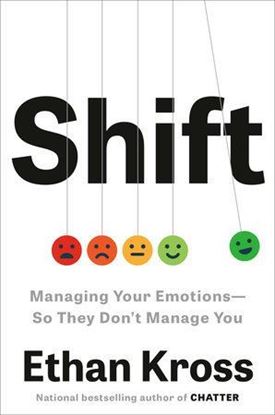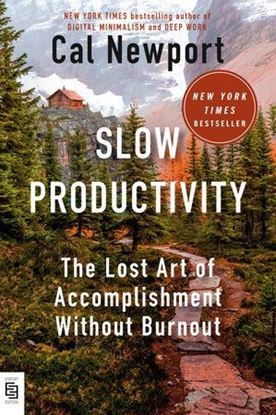

SHERLOCK HOLMES. THE COMPLETE VOLUME II
ABOUT SHERLOCK HOLMES: THE COMPLETE NOVELS AND STORIES, VOLUME II
Sherlock Holmes: The Complete Novels and Stories contains, in two volumes, all fifty-six short stories and four novels featuring Sir Arthur Conan Doyle’s world-famous detective.
Volume II contains the fourth of the Sherlock Holmes novels, The Valley of Fear, in which Holmes memorably faces his malignant archenemy, Professor Moriarty. The short stories collected here include such celebrated gems as “The Adventure of Wisteria Lodge,” “The Adventure of the Red Circle,” “The Adventure of the Devil’s Foot,” “The Adventure of the Sussex Vampire,” and “His Last Bow: The War Service of Sherlock Holmes.” With the stories from the final collection, The Case-Book of Sherlock Holmes, published in 1927, this volume carries the venerable detective through to the very end of his enthralling four-decade career as one of the most beloved characters in literature.
1,100
SHIFT
Whether it’s anxiety about going to the doctor, boiling rage when we’re stuck in traffic, or devastation after a painful break-up, our lives are filled with situations that send us spiraling. But as difficult as our emotions can be, they are also a superpower. Far from being “good” or “bad,” emotions are information. When they’re activated in the right ways and at the right time, they function like an immune system, alerting us to our surroundings, telling us how to react to a situation, and helping us make the right choices.
1,450
SHOW DON'T TELL
In her second story collection, Sittenfeld shows why she’s as beloved for her short fiction as she is for her novels. In these dazzling stories, she conjures up characters so real that they seem like old friends, laying bare the moments when their long held beliefs are overturned.
In “The Patron Saints of Middle Age,” a woman visits two friends she hasn’t seen since her divorce. In “A for Alone,” a married artist embarks on a creative project intended to disprove the so-called Mike Pence Rule, which suggests that women and men can’t spend time alone together without lusting after each other. And in “Lost but Not Forgotten,” Sittenfeld gives readers of her novel Prep a window into the world of her beloved character Lee Fiora, decades later, when Lee attends an alumni reunion at her boarding school.
Hilarious, thought-provoking, and full of tenderness for her characters, Sittenfeld’s stories peel back layer after layer of our inner lives, keeping us riveted to the page with her utterly distinctive voice.
1,300
SLOW PRODUCTIVITY
Our current definition of “productivity” is broken. It pushes us to treat busyness as a proxy for useful effort, leading to impossibly lengthy task lists and ceaseless meetings. We’re overwhelmed by all we have to do and on the edge of burnout, left to decide between giving into soul-sapping hustle culture or rejecting ambition altogether. But are these really our only choices?
Long before the arrival of pinging inboxes and clogged schedules, history’s most creative and impactful philosophers, scientists, artists, and writers mastered the art of producing valuable work with staying power. In this timely and provocative book, Cal Newport harnesses the wisdom of these traditional knowledge workers to radically transform our modern jobs. Drawing from deep research on the habits and mindsets of a varied cast of storied thinkers – from Galileo and Isaac Newton, to Jane Austen and Georgia O’Keefe – Newport lays out the key principles of “slow productivity,” a more sustainable alternative to the aimless overwhelm that defines our current moment. Combining cultural criticism with systematic pragmatism, Newport deconstructs the absurdities inherent in standard notions of productivity, and then provides step-by-step advice for cultivating a slower, more humane alternative.
1,400
SMART, NOT LOUD
When Jessica Chen entered the workforce, she felt like everything she had been taught growing up in a Quiet Culture household—where deference, humility, harmony, and dogged hard work were praised—failed to set her up for success in the “real world.” Her ingrained values were in direct contrast with what was actually needed to stand out in a Loud Culture workplace. The result? Feeling underappreciated, passed over for opportunities and promotions, and completely stuck.
Building on the lessons she learned as an award-winning TV news journalist, Chen—who now speaks at Fortune 100 companies and whose LinkedIn Learning courses have been watched by over 2 million people—introduces a new way of getting noticed at work, without being loud, aggressive, or boastful. In Smart, Not Loud, Chen teaches readers how they can look within, to the values they already hold, to more effectively show up.
1,995
SOMEBODY'S FOOL (MREXP)
Ten years after the death of the magnetic Donald “Sully” Sullivan, the town of North Bath is going through a major transition as it is annexed by its much wealthier neighbor, Schuyler Springs. Peter, Sully’s son, is still grappling with his father’s tremendous legacy as well as his relationship to his own son, Thomas, wondering if he has been all that different a father than Sully was to him.
Meanwhile, the towns’ newly consolidated police department falls into the hands of Charice Bond, after the resignation of Doug Raymer, the former North Bath police chief and Charice’s ex-lover. When a decomposing body turns up in the abandoned hotel situated between the two towns, Charice and Raymer are drawn together again and forced to address their complicated attraction to one another. Across town, Ruth, Sully’s married ex-lover, and her daughter Janey struggle to understand Janey’s daughter, Tina, and her growing obsession with Peter’s other son, Will. Amidst the turmoil, the town’s residents speculate on the identity of the unidentified body, and wonder who among their number could have disappeared unnoticed.
Infused with all the wry humor and shrewd observations that Russo is known for, Somebody's Fool is another classic from a modern master.
850













